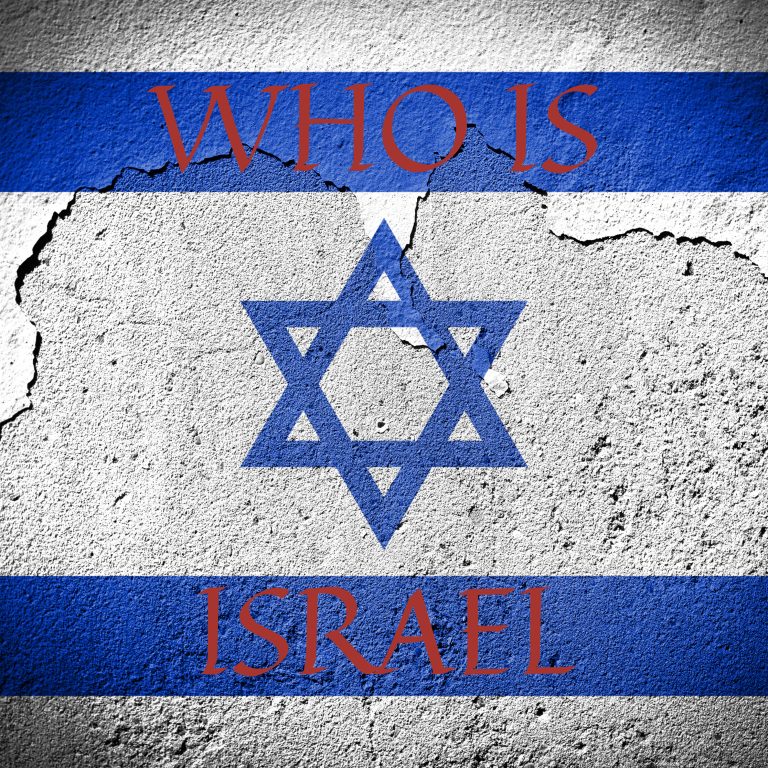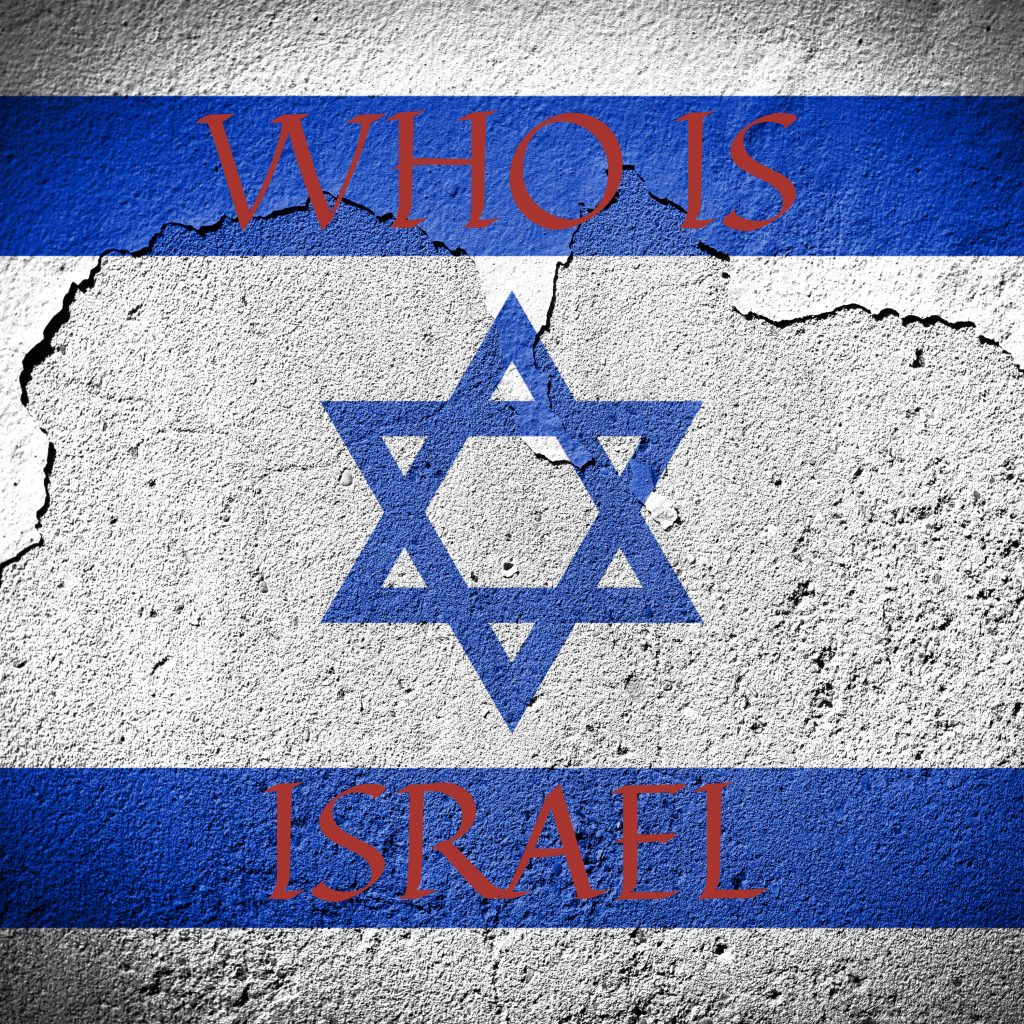
This show will get to the bottom of all those questions you need answers to. Each week we will cover a topic that has been left out in the public square unattended and covered with questions from the “official story” You will be able to determine on this show if the topic has been deemed a “Conspiracy” or a “Conspiracy Theory”.
The history of Israel is complex and spans thousands of years. It includes ancient civilizations, biblical events, and modern geopolitical developments. Key moments include the establishment of the Kingdom of Israel, the Babylonian exile, the Roman conquest, and the diaspora. In 1948, the State of Israel was officially declared, leading to conflicts with neighboring countries. The region has seen ongoing political and religious tensions, with Jerusalem holding significance for Judaism, Christianity, and Islam.

Abraham – Isaac – Jacob
Jacob’s name was changed by God to Israel, Jacob had a big family and his descendants became known as the Children of Israel or Israelites.
This name change is found in Genesis 32: 22-32

Israel – He Who Wrestles With God
Jacob Wrestles with God
22 During the night Jacob got up and took his two wives, his two servant wives, and his eleven sons and crossed the Jabbok River with them. 23 After taking them to the other side, he sent over all his possessions. 24 This left Jacob all alone in the camp, and a man came and wrestled with him until the dawn began to break. 25 When the man saw that he would not win the match, he touched Jacob’s hip and wrenched it out of its socket. 26 Then the man said, “Let me go, for the dawn is breaking!” But Jacob said, “I will not let you go unless you bless me.” 27 “What is your name?” the man asked. He replied, “Jacob.” 28 “Your name will no longer be Jacob,” the man told him. “From now on you will be called Israel,[c] because you have fought with God and with men and have won.” 29 “Please tell me your name,” Jacob said. “Why do you want to know my name?” the man replied. Then he blessed Jacob there. 30 Jacob named the place Peniel (which means “face of God”), for he said, “I have seen God face to face, yet my life has been spared.” 31 The sun was rising as Jacob left Peniel,[d] and he was limping because of the injury to his hip. 32 (Even today the people of Israel don’t eat the tendon near the hip socket because of what happened that night when the man strained the tendon of Jacob’s hip.)
Abraham had eight sons. The record of these sons and their names are in the Book of Genesis. First, he had Ishmael, who was the son of a slave woman–Hagar of Egypt was his mother. She was the slave of Sarah, Abraham’s wife. When Abraham was 99 years old, Sarah miraculously became pregnant at age 89; then Isaac was born. Ishmael hated Isaac; he was jealous of Isaac, because Isaac was not a slave child, but the special son of God’s promise. Abraham had another wife, Keturah. She had six sons by Abraham (Genesis 25). So of the eight sons of Abraham, only Isaac was the son of Abraham and Sarah; only Isaac was the son the God had promised. It is similar to the story of Joseph in Genesis; all the brothers hated Isaac, just as Joseph’s brothers hated him and sold him into slavery. Early in Isaac’s life, Ishmael mocked and made fun of Isaac. Isaac was the first son of Abraham to be circumcised on the eighth day of his life. Ishmael had been circumcised at the same time as Abraham. Circumcision is first mentioned in Genesis 17; from then on, all of Abraham’s children and slaves had to be circumcised, even as Abraham himself was. Jews are still circumcised on the eighth day. All the sons of Abraham, except Isaac, are the fathers of the Arab nations. They are still circumcised at age 12 or 13.
So if there are people out there who don’t believe the Bible we have other records that have named Israel in historical documents, In the 13th century BCE an ancient Egyptian pharaoh named Merneptah commissioned a stele to record various military victories (A Stele, is basically a stone monument like an upright stone slab or column with writings or drawings.) Among some of those victories were the Merneptah’s defeat of Israel and Canaan. Merneptah’s scribes don’t give us much beyond a name. But a later stele is a bit more forthcoming, the Tel Dan Stele which dates back to the 9th century BCE makes this reference “…I killed Jehoram son of Ahab king of Israel and I killed Ahaziah son of Jehoram king of the House of David” which this suggests 2 things 1. Israel is probably a place named after the Israelites the descendants of Jacob, who lived there. And 2 there’s archeological evidence dating back to the 9th century BCE for the Biblical account of an Israelite king named David. We know that David’s kingdom split into 2 separate kingdoms around 930 BCE, the northern kingdom retained the name Israel, and the southern kingdom which is home to Jerusalem was named Judah. Both kingdoms were home to Jacob’s descendants. But in the 8th century BCE, when the Assyrians destroyed the kingdom of Israel only the kingdom of Judah survived. Its territory became known as Judea, which is the Greek word for Judah. And its people became known as Jews. So the name Israel and Judah are ancient and they denote places where Jews established a monarchy and were established from at least the 12th century BCE until today. This is one of the main reasons that these two names are so important to the Jewish people because they reaffirm the link between their history and their present. For over 3,000 years the Jewish people have called the land of Israel their home and the province Judea with Jerusalem at its heart. Even over time when other nations would conquer and occupy this region knew it as Judah, King Nebuchadnezzar referred to his invasion of the land of Hatti and he laid siege to the city of Judah. The Persians kept the name as well after they conquered the land from the 7th – 4th century BCE when the Greek and Roman empires came along in the 4th century they kept the name and referred to the province as Judea.
During the reign of King David, the Jews’s biggest enemy was a group called the Philistines, who came from a place known in Hebrew as Paleshet (Pa le sha) in Egyptian: Paleset (Pa Le Set) and in Assyrian: Palashtu (Pa La Shtu)
Question of the Group: Could The Israelite’s ancient enemy the Philistines hold the key to the name Palestine? Byron: Probably but no firm evidence.
Most scholars believe that the Philistines made their way from the Greece region to the shores of Judea in the 12th century BCE roughly around the time that Israel started showing up in records. Because the Philistines left no written record we only have written accounts from the people that they warred with. Egyptians, Assyrians, Babylonians, Persians, Greeks Romans, and of course the Israelites. What was known as Philistines in written records shows that they are not around any longer they seemed to have disappeared from written records after Nebuchadnezzar destroyed their cities in the 6th century BCE, the people that are living in that region today are not descendants of the Philistines, however, the Philistines did leave a few things behind like pottery, temples, shrines, and a name…which in Greek became Palestine.
In the 5th century BCE the Greek historian Herodotus took a road trip around the Levant, in his record he described a place which sounds like modern-day Israel, but he called it Syrian Palestine. Why didn’t he call it Judea like everyone else? Let’s see if we can explain, historians Louis Feldman and Bernard Lewis asserted that Herodotus was referring only to the coastline of that part of the region where the Philistines lived in cities like Jaffa Ashkelon and Gaza. According to Feldman Herodotus didn’t venture much farther inland to the majority-Jewish province of Judea. This is backed by the 1st-century historian Josephus Flavius who says that The Greeks called part of that country Palestine. But other historians like Martin Noth and David Jacobson claim that Herodotus’ use of Palestine refers to the whole of the region, they believe that the Greek name Palestine is actually an alternate name for the land of the Jews. Remember the word Israel means he who wrestles with God, interesting the ancient Greek word for wrestler is palaistes sounds a lot like Palestine,
Question for the Group: Is it possible that the Greeks call this land Palestine as a literal translation of the Hebrew word Israel rather than an explicit reference to the Philistines?
Herodotus description of the people living in Palestine makes them sound quite a bit like Jews, he comments that the people living in Palestine were circumcised, like Jews, and later writers like Ovid stated that there was a seventh-day feast that the Syrians of Palestine observed sounds like Shabbat. So those are a couple of reasons why the name Palestine stuck around.
But then the Romans came along, and once they took control of Judea things got really ugly because the Jews fought the Romans bitterly, so bitterly in fact that the Romans destroyed the Jewish Holy Temple in 70 CE and carted many Jews away from their home in chains. But just like in the Old Testament the flame of rebellion smoldered and in the 2nd century CE a Jewish Warrior named Shimon Bar Kokhba led a strike force against the Roman occupier. His force gave the Romans hell, but the Romans had the resources of an entire empire that crushed the revolt and renamed the land of the Jews to Syria-Palestina No one knows who exactly chose that name but of course, historian Louis Feldmend suggests that it was the Emperor Hadrian which ruled from 76-138 CE. Why would he choose this name? well, let’s look at 2 possible reasons, 1st the Romans including Hadrian were big fans of the Greeks, and the Greeks had used the name Palestine for hundreds of years to refer to different parts of the land we know as Israel. So as Hadrian consolidated his territory it made sense to adopt a name that had been used by the Greeks. The 2nd reason is a little nefarious and harder to prove, Louis Feldman wrote that the name change was deliberately intended to sever all Jewish connections from the land replacing Judea or Israel with the name of the Jew’s ancient enemy, the Philistines. This seems plausible due to Hadrian’s hatred for the Jewish people.
When the Arab army swept through the Levant in the 7th century CE they adopted the name Syria Palestine into Arabic as Falasteen then centuries came and went and this region was traded over and over again into different hands such as Arab dynasties and Christian crusaders and the Ottoman Empire the region kept the name Palestine and its inhabitants, Arabs, Samaritans and Jews alike were known as Palestinians.
So modern-day Israel was established in a region that was once known as Palestine. Though there was never a self-governing Arab country named Palestine the region’s inhabitants were known as Palestinians.
Israel’s History
The history of Israel is complex and spans thousands of years. It includes ancient civilizations, biblical events, and modern geopolitical developments. Key moments include the establishment of the Kingdom of Israel, the Babylonian exile, the Roman conquest, and the diaspora. In 1948, the State of Israel was officially declared, leading to conflicts with neighboring countries. The region has seen ongoing political and religious tensions, with Jerusalem holding significance for Judaism, Christianity, and Islam.
Key Moments
1. **Ancient Israelites and Kingdoms:**
In ancient times, the Israelites established the Kingdom of Israel around 1000 BCE, led by figures like King David and King Solomon. The kingdom split into Israel (North) and Judah (South) after Solomon’s reign.
2. **Babylonian Exile:**
In 586 BCE, the Babylonians conquered Judah and destroyed the First Temple in Jerusalem, leading to the Babylonian Exile. The Israelites were forced to live in Babylon for several decades.
3. **Return and Second Temple:**
After the Babylonian Exile, some Israelites returned to the land and rebuilt the Second Temple in Jerusalem. This period is marked by the influence of Persian, Greek, and later Roman rule.
4. **Roman Conquest:**
In 63 BCE, the Roman general Pompey captured Jerusalem, and in 70 CE, the Romans destroyed the Second Temple during a rebellion, an event known as the Siege of Jerusalem.
5. **Diaspora:**
The destruction of the Second Temple led to the widespread dispersal of Jews, known as the diaspora, as they settled in various regions across the Roman Empire.
6. **Byzantine and Islamic Periods:**
The land of Israel experienced shifts in rule, including the Byzantine Empire and later the Islamic Caliphates. Jerusalem gained religious significance in Islam during this time.
7. **Crusades and Ottoman Rule:**
Jerusalem changed hands multiple times during the Crusades. The Ottoman Empire eventually gained control in the 16th century and ruled the region until World War I.
8. **Balfour Declaration and British Mandate:**
In 1917, the Balfour Declaration expressed British support for the establishment of a “national home for the Jewish people” in Palestine. The League of Nations granted Britain the mandate to administer the area.
9. **1948 Independence and Arab-Israeli War:**
The State of Israel was officially declared on May 14, 1948. The declaration led to conflicts with neighboring Arab countries, resulting in the Arab-Israeli War.
10. **Post-1948 Developments:**
Israel faced subsequent wars, territorial changes, and peace processes with its Arab neighbors. Jerusalem remains a focal point of contention, and the Israeli-Palestinian conflict has persisted, influencing the region’s dynamics.
Why is it significant to Islam
1. **Al-Aqsa Mosque and the Dome of the Rock:** Jerusalem is home to two of the holiest sites in Islam—the Al-Aqsa Mosque and the Dome of the Rock. Al-Aqsa Mosque, believed to be the third holiest site in Islam, holds great importance as the place where, according to Islamic tradition, Prophet Muhammad embarked on the Night Journey to the heavens. The Dome of the Rock is built on the site where Muslims believe Prophet Muhammad ascended to the heavens.
2. **Night Journey (Isra and Mi’raj):** The Night Journey, mentioned in the Quran, describes Prophet Muhammad’s miraculous journey from Mecca to Jerusalem and then his ascension through the heavens. This event is commemorated in the Dome of the Rock.
3. **Religious and Historical Significance:** Jerusalem is revered in Islam not only for its association with Prophet Muhammad but also for its connection to earlier prophets, including Ibrahim (Abraham), Musa (Moses), and Isa (Jesus). Islamic tradition holds that these prophets played crucial roles in the region.
4. **Qibla (Direction of Prayer):** Initially, Muslims prayed facing Jerusalem before the Qibla direction was later changed to Mecca. This historical connection underscores the early significance of Jerusalem in Islamic practice.
5. **Cultural and Religious Heritage:** The land that is now Israel has a rich Islamic cultural and architectural heritage. Beyond the religious sites, the region has historic significance in terms of Islamic art, scholarship, and civilization during various historical periods.
The importance of the land in Islam is deeply intertwined with its role in the Quranic narrative, the religious events associated with Prophet Muhammad, and the broader history of Islamic civilization. The religious and historical significance of Jerusalem, in particular, remains a central aspect of the Islamic faith.
Abrahamic covenant includes
1. **Land Promise:** God promised Abraham and his descendants a land of their own. In the biblical context, this is often associated with the land of Canaan. In the Islamic tradition, the covenant is also linked to the land, and it is seen as a broader promise of a blessed and sacred land.
2. **Descendants Promise:** God assured Abraham that he would be the father of a great nation, and his descendants would be as numerous as the stars. This promise is understood differently in each Abrahamic religion, with Jews and Christians viewing it in connection with the Israelites, and Muslims associating it with the descendants of Ishmael and Isaac.
3. **Blessing Promise:** God promised to bless Abraham and make his name great. This is interpreted as a divine favor that extends to his descendants.
The Abrahamic Covenant
1. **Genesis 12:1-3 (NIV):**
> The Lord had said to Abram, “Go from your country, your people and your father’s household to the land I will show you. I will make you into a great nation, and I will bless you; I will make your name great, and you will be a blessing. I will bless those who bless you, and whoever curses you I will curse; and all peoples on earth will be blessed through you.”
2. **Genesis 15:5-7 (NIV):**
> He took him outside and said, “Look up at the sky and count the stars—if indeed you can count them.” Then he said to him, “So shall your offspring be.” Abram believed the Lord, and he credited it to him as righteousness. He also said to him, “I am the Lord, who brought you out of Ur of the Chaldeans to give you this land to take possession of it.”
3. **Genesis 17:1-8 (NIV):**
> When Abram was ninety-nine years old, the Lord appeared to him and said, “I am God Almighty; walk before me faithfully and be blameless. Then I will make my covenant between me and you and will greatly increase your numbers.” Abram fell facedown, and God said to him, “As for me, this is my covenant with you: You will be the father of many nations. No longer will you be called Abram; your name will be Abraham, for I have made you a father of many nations. I will make you very fruitful; I will make nations of you, and kings will come from you. I will establish my covenant as an everlasting covenant between me and you and your descendants after you for the generations to come, to be your God and the God of your descendants after you. The whole land of Canaan, where you now reside as a foreigner, I will give as an everlasting possession to you and your descendants after you; and I will be their God.”
The Davidic Covenant
**2 Samuel 7:8-16 (NIV):**
> “Now then, tell my servant David, ‘This is what the Lord Almighty says: I took you from the pasture, from tending the flock, and appointed you ruler over my people Israel. I have been with you wherever you have gone, and I have cut off all your enemies from before you. Now I will make your name great, like the names of the greatest men on earth. And I will provide a place for my people Israel and will plant them so that they can have a home of their own and no longer be disturbed. Wicked people will not oppress them anymore, as they did at the beginning and have done ever since the time I appointed leaders over my people Israel. I will also give you rest from all your enemies. ‘The Lord declares to you that the Lord himself will establish a house for you: When your days are over and you rest with your ancestors, I will raise up your offspring to succeed you, your own flesh and blood, and I will establish his kingdom. He is the one who will build a house for my Name, and I will establish the throne of his kingdom forever. I will be his father, and he will be my son. When he does wrong, I will punish him with a rod wielded by men, with floggings inflicted by human hands. But my love will never be taken away from him, as I took it away from Saul, whom I removed from before you. Your house and your kingdom will endure forever before me; your throne will be established forever.'”
In this passage, God promises David:
1. A great name and stature.
2. A place for the people of Israel, providing them with a permanent home.
3. Rest from enemies.
4. The establishment of a dynasty through David’s offspring, with an enduring kingdom and an everlasting throne.
This covenant is often referred to as the Davidic Covenant because it centers on the promise of an everlasting dynasty through the line of David, leading to the expectation of a messianic figure, which plays a crucial role in both Jewish and Christian eschatology.
In Islam, the lineage back to Abraham
1. **Abraham (Ibrahim):** According to Islamic tradition, the Prophet Abraham is a central figure and is recognized as one of the great prophets. His story, including the construction of the Kaaba in Mecca, is recounted in the Quran.
2. **Ishmael (Ismail):** Ishmael is considered the elder son of Abraham and Hagar in Islamic tradition. The Quran mentions that God blessed Ishmael and Hagar and settled them in a barren valley, believed to be Mecca, where the Kaaba is located.
3. **Adnan:** Adnan is a descendant of Ishmael and is traditionally considered an ancestor of the Prophet Muhammad. The lineage from Ishmael to Adnan is often regarded as the “Ishmaelite” lineage.
4. **Quraish Tribe:** The Quraish tribe, to which the Prophet Muhammad belonged, is a subset of Adnan’s descendants. The Quraish tribe was influential in pre-Islamic Arabia, and Muhammad was born into the Hashim clan of the Quraish.
5. **Prophet Muhammad:** Muhammad, born in Mecca in 570 CE, is considered the last prophet in Islam. His prophethood is believed to fulfill the Abrahamic tradition, and he received the revelations that form the Quran over a period of 23 years.


